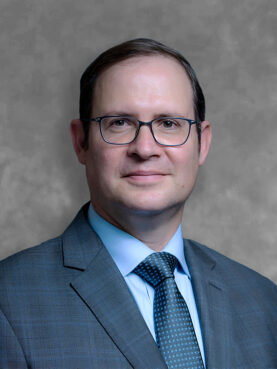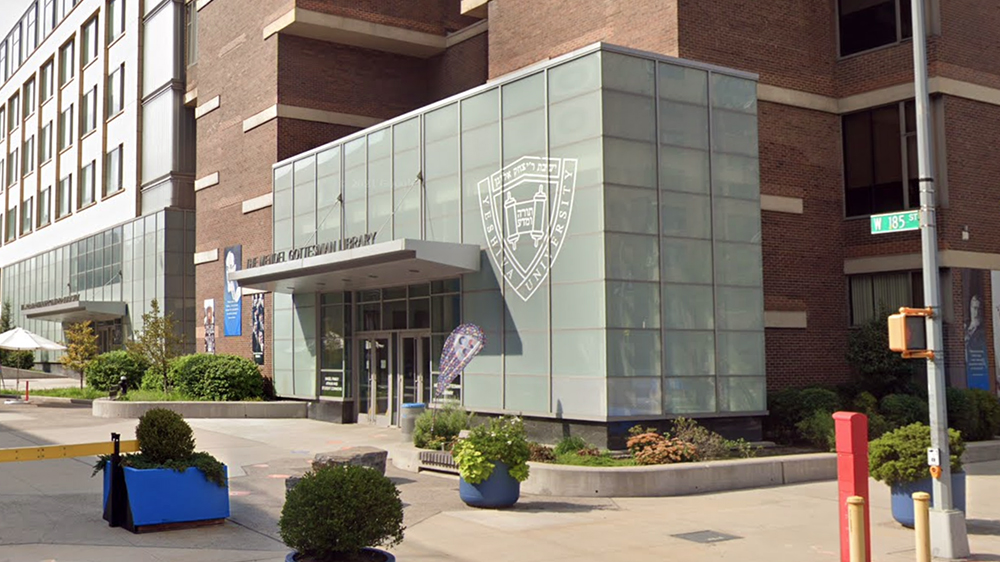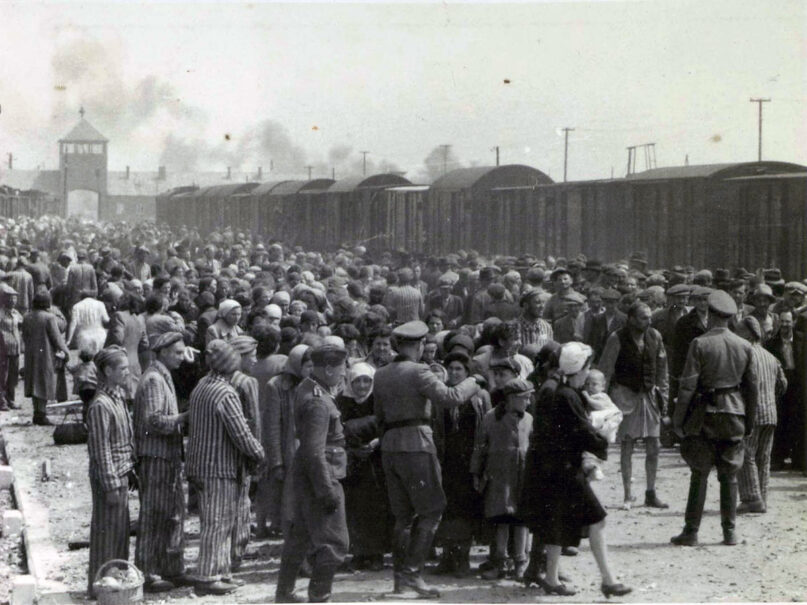(RNS) — In 2008, Shay Pilnik was a Ph.D. student living in Oshkosh, Wisconsin, whose first university gig came in the form of a Holocaust course that nobody wanted to teach.
“To pitch myself as a candidate for that class was very easy,” Pilnik said about becoming an adjunct instructor at the University of Wisconsin-Oshkosh. “Nobody wanted to touch it. It has a lot of emotional, cultural and political underpinnings.”
Fifteen years later, Pilnik says many educators still fear teaching about the Holocaust. But the need is greater than ever. Just this week, the Anti-Defamation League found that 2022 had the highest number of reported antisemitic incidents since the group began tracking them in 1979, and a 2020 study by the Claims Conference, an organization dedicated to securing compensation for Holocaust survivors, found that 49% of U.S. millennials and Gen Zers could not name a single concentration camp.
“We see the rise in antisemitism, most survivors are gone, and we see a lot of clues that the Holocaust is being forgotten,” Pilnik told Religion News Service. “Now is the time, we feel, to step up and rise to the occasion.”

Shay Pilnik. Photo courtesy of Yeshiva University
As director of Yeshiva University’s Emil A. and Jenny Fish Center for Holocaust & Genocide Studies, Pilnik is working to equip a new generation of educators with the pedagogical tools to effectively teach the Holocaust. Founded in 2019 by Holocaust survivor Emil Fish, Yeshiva’s Fish Center already offers a Master of Arts in Holocaust and Genocide Studies.
This fall, it will begin offering a 12-credit Advanced Certificate in Holocaust Education specifically geared toward 6-12th grade English, social studies, history or humanities teachers in both public and private schools. And in early March, the center announced a new partnership with Yad Vashem, the World Holocaust Remembrance Center based in Jerusalem. Though the alliance is still in the early stages, the institutions plan to partner “in curriculum building, resource sharing, educator training and event design” to promote Holocaust education. Faculty affiliated with Yad Vashem will be involved in teaching courses in the new certificate program.
Though there are plenty of Holocaust and genocide studies programs at universities across the U.S., Pilnik says the Fish Center’s approach is distinct because, while people of any spiritual background can enroll, its content is rooted in Jewish experiences.
“There’s a mandate in over 20 states in the union for Holocaust education. But having said that, it’s often taught in a diluted way, and in a way where, according to a number of scholars, the subject is being inadvertently or consciously de-Judaized,” Pilnik observed. “We call it, facetiously, the Holocaust without Jews.”
According to Pilnik, the Holocaust is often framed by general conversations about human rights and genocide prevention. He believes educators must emphasize the Holocaust is “the pinnacle of the persecution Jews have experienced for two millennia.”
The Fish Center’s master’s and certificate programs offer resources for capturing the agency, creativity and humanity of Jewish people who lived during the Holocaust. Rather than stopping and starting with “The Diary of Anne Frank” or focusing exclusively on horrific images from concentration camps, these programs equip educators to tell the stories of Jewish communities who formed choirs, wrote symphonies and practiced their faith in secret.

The Mendel Gottesman Library at Yeshiva University in the Washington Heights neighborhood of Manhattan, New York. Image courtesy of Google Maps
“These stories, they’re very important, because by diluting, you also dehumanize,” said Pilnik.
The Fish Center’s 30-credit master’s program has already attracted nearly 50 students. Unlike the certificate program, which is only open to educators, the master’s program includes students who are retirees, Ph.D. hopefuls, Wall Street bankers and anesthesiologists.
Both programs have course modules taught by experts from within and beyond Yeshiva University and are offered in a synchronous, virtual format. The certificate program has a more explicit emphasis on pedagogy, though participants can go on to complete the full 30 credits for a master’s degree, if they choose. And according to Pilnik, all of the Fish Center’s programs aim to cultivate genuine connection between participants and alumni. “The response to genocide is community building,” he said.
Anna Ecker, a high school English teacher in New York City’s public schools, enrolled in the master’s program in fall 2021. She says she already feels prepared to provide better context for the Holocaust literature she teaches.
“My generation, we grew up studying the Holocaust for two days in social studies watching a scary movie. That’s the extent of our Holocaust education. And maybe I took a course in college,” Ecker told RNS. “That’s not enough to adequately prepare somebody to teach the Holocaust in a way that’s going to be meaningful.”





